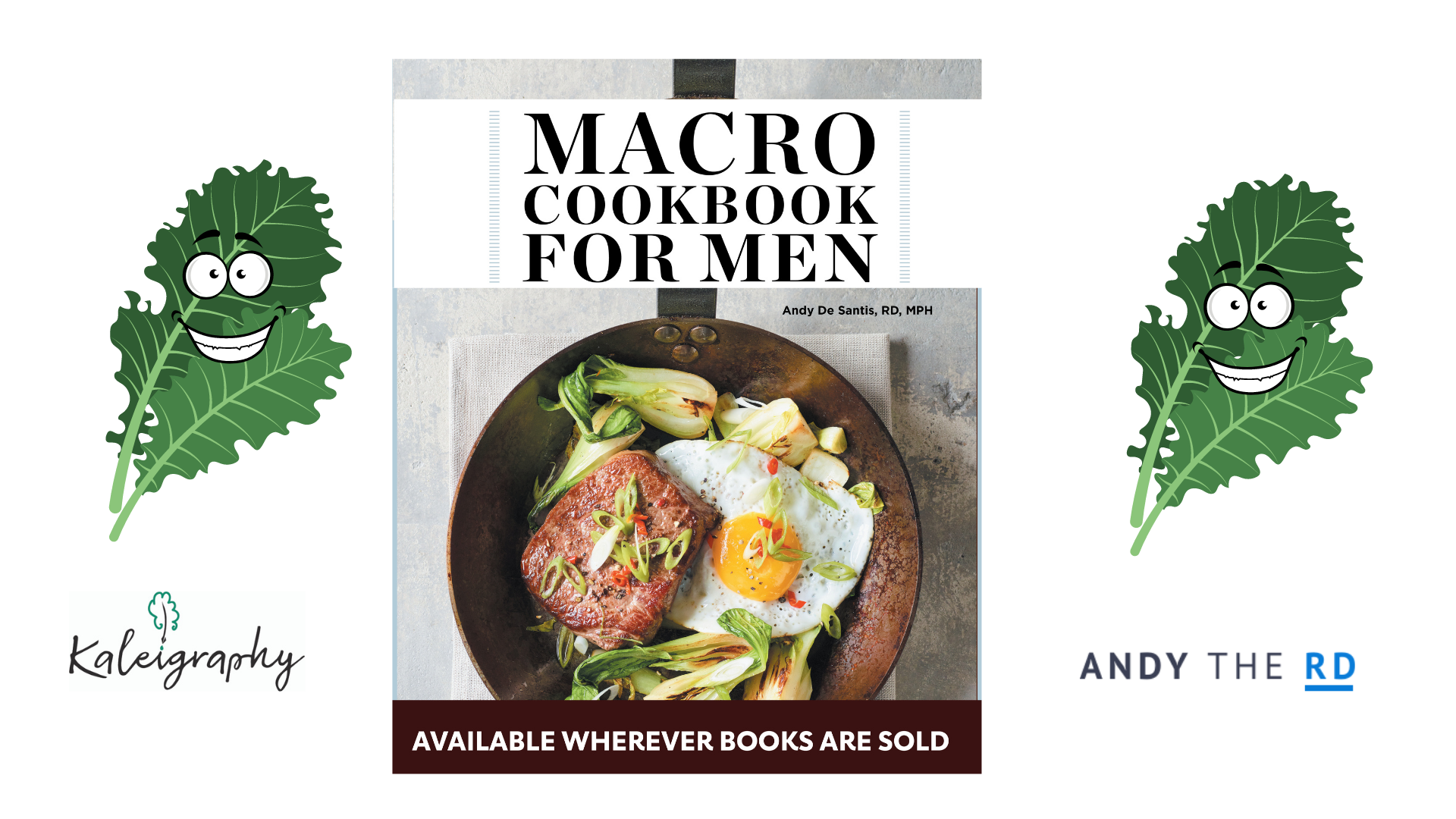There are a number of different reasons why a guy might want to speak with a dietitian.
Issues with sexual health could even be one of them.
Having just written a book on men’s health, pictured (and available to order!) below, I can appreciate more than most just how much interest this subject generates.
A man’s risk for erectile dysfunction is significantly increased by largely manageable physiological abnormalities such as high blood pressure, high blood cholesterol, high blood tryiglycerides and/or poorly controlled blood sugar levels ( as could be the case in those living with diabetes).
Many of these metabolic dysfunctions are quite common, and often represent among the most likely reasons why someone in North America would be prescribed medication.
According to data out of the United States, close to 1 in 5 men above the age of 20 suffer from erectile dysfunction, and these numbers jump up sharply to 1 in 2 for men living with diabetes.
As a former employee of Diabetes Canada, these data mean something to me.
And when we consider men aged 40+ only, nearly half of that demographic suffers from erectile dysfunction.
In other words, this is not an insignificant or uncommon problem.
Additionally, there is no supporting evidence that supplements like testosterone boosters, which would theoretically support good sexual health, actually work.
So what are we going to do about it?
Let’s find out.
Fighting Back With Food
For each of the leading risk factors for erectile dysfunction, there are clear dietary management options that exist.
- For High Blood Pressure – The dietary management of high blood pressure is contingent on sodium reduction paired with an increase in potassium intake. Most North American men consume way too much sodium – you can learn more about the specific connection between sodium and sexual health by reading my article on the topic.
- For High Blood Cholesterol – The most straightforward dietary management strategy for high blood cholesterol is to incorporate foods from the portfolio diet.
- For High Blood Sugar – This can be more complex depending on the severity of the issue, but many foods from the portfolio diet also support good blood sugar management.
- For High Blood Triglycerides – Introducing foods rich in omega-3 fatty acids and trending towards a diet with a lower glycemic load can both help lower your TGs.
A keen observer will notice that there is a great deal of overlap in the dietary principles and types of helpful foods in each of these categories.
This simply boils down to the fact that certain key food groups are, above most others, fundamental in optimal human health and functioning.
Dietary styles that embody these principles, such as the Mediterranean diet, tend to lesson one’s risk of experiencing erectile dysfunction.
Conversely, diets that are characterized by the frequent consumption of refined carbohydrates ( white bread, pastries, grain-based desserts) and infrequent consumption of vegetables tend to be predictive of not only erectile dysfunction but also reduced testosterone levels.
Given the importance of dietary fat in the production of testosterone, it should come as no surprise that severe low fat diets may also reduce male testosterone levels.
There is also evidence to suggest a relationship between magnesium and testosterone levels.
Magnesium is one of the nutrients with the highest potential to be under consumed by the average person, so please do read my article on the top sources of magnesium to make sure you are getting enough.
You know what WON’T reduce your testosterone levels though? Enjoying cholesterol lowering soy-based foods like tofu, tempeh, edamame and soy milk.
Don’t believe me? Read this article.
Please also keep in mind that you don’t necessarily need to reinvent the wheel to work closer to a style of eating that will help, even a step as simple as switching to steel cut from instant oatmeal could play a meaningful role.
Bonus Content – Vitamin D & Premature Ejaculation
You can’t make this stuff up.
Although much better research will be required in order to draw firm causal conclusions, multiple studies (1,2) have demonstrated that men who deal with premature ejaculation tend to have significantly lower serum vitamin D levels then men who don’t.
I’ve written extensively on vitamin D and why it is a public health concern here in Canada.
The irony of a potential connection to sexual health is not lost on me, but it certainly isn’t a laughing matter.
While this data does not tell us that improving vitamin D status will “fix” premature ejaculation, it certainly is an intriguing consideration when accounting for the fact that between 25-40% of Canadians have insufficient blood levels of vitamin D (depending on the season) and that males actually tend to have lower levels than females.
The food’s highest in Vitamin D include:
- Fortified milk & milk alternatives – read the label
- Fish such as salmon, mackerel, trout, herring, sardines – by far the highest food source
- Egg Yolks – they aren’t bad for you after all!
- Other Fortified products like orange juice, some cereals etc –read the label and look for Vitamin D
Final Thoughts
The goal of today’s article is simply to help you appreciate that your food choices have consequences far beyond mitigating some future risk of negative health outcomes and could actually play a massive role in improving your sexual health and quality of life TODAY.
If you are in a position where your feel you’ve left something on the table when it comes to optimizing your dietary pattern, know that working with a dietitian like myself can go a long way.
Until next time,
Andy De Santis RD MPH
Bonus Content – Anxiety & Sexual Performance
Although arguably more complex than the topics discussed in today’s post, anxiety is another issue which may be detrimental to sexual health and performance.
If you are curious about the role of nutrition in anxiety management, please read my article on the subject.
You may also be interested the piece I’ve written on the potential role of CBD as an alternative anxiety management tool.
Want More Nutrition & Sexual Health Content?
Tune in to my podcast appearance with my colleague Erin ( founder of Nutrition Rewired) where we discuss all things nutrition and men’s sexual health.




